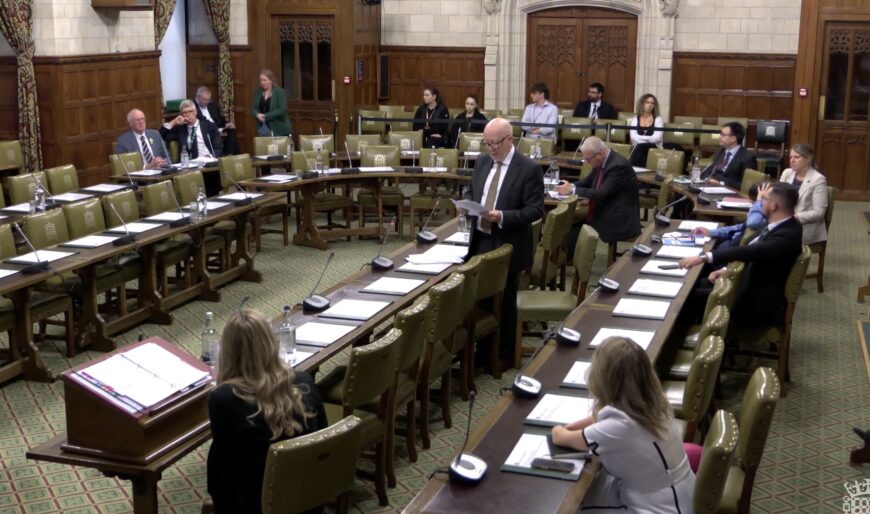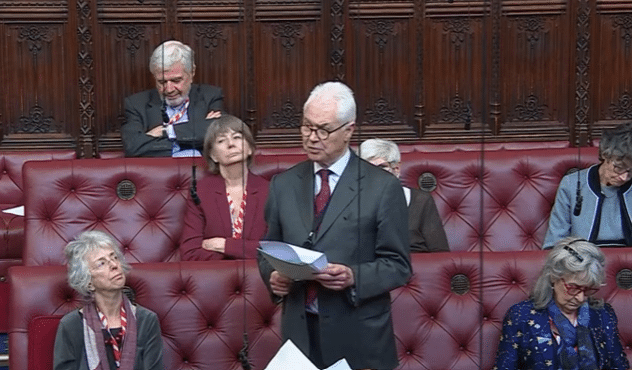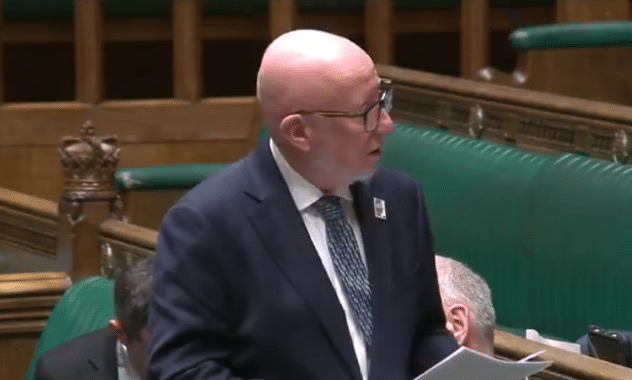Westminster Hall Debate: Trade Union Access to Workplaces
On Wednesday, Labour MP Andy McDonald secured a Westminster Hall debate on improving the Government's proposed framework for TU access rights

On Wednesday, the Labour MP for Middlesborough and Thornaby East, Andy McDonald, secured an important debate on trade union access to workplaces.
The Employment Rights Bill provides that a trade union will be able to ask an employer to enter into an access agreement, and that if the employer refuses, the union will be able to complain to the Central Arbitration Committee (CAC), which can effectively impose an access arrangement on the employer.
In our briefing on the ERB, written by Professor Keith Ewing and Lord John Hendy KC, they wrote:
Here we find that there is currently no way by which the employer can be compelled to comply. If it is so minded, the union can make another reference to the CAC to have a financial penalty imposed on the employer. This will be done at the union’s own expense, and the procedure will, inevitably, be contested, which means that the costs to the union are likely to be significant.
Andy McDonald’s intervention comes at a key time, with the Government now consulting on the Bill’s new statutory duty on employers to allow trade unions to access the workplace for certain purposes. It asks what form the union’s request for access should take, how it should be submitted, and what information it must include to show legitimacy and purpose. The consultation also proposes a framework of penalties for employers or unions that breach access agreements.
You can watch the debate back by following this link and read an excerpt from the debate below.
Transcript:
Andy McDonald MP:
“Access rights will mostly be detailed in secondary legislation.
Future regulations must genuinely deliver the Government’s promise of a meaningful right of access. That includes ensuring that the right is enforceable, as union-busting employers and their lawyers will exploit any gaps. Unions want to ensure that provisions are as strong as possible. Face-to-face communication remains the most effective way for unions to recruit and organise. Robust penalties are needed so that employers cannot price refusal in. Far too often, we have seen employers pricing in the breach of provisions as simply the cost of doing business. We cannot permit that.
Debates in Committee and wider parliamentary discussions have reiterated those points. Witnesses stressed the importance of digital access, reasonable notice, clarity over dwellings and enforceable CAC determinations. Amendments clarified that only independent trade unions certified by the certification officer could exercise statutory access rights, preventing employers from using non-independent sweetheart unions. The CAC is empowered to adjudicate disputes, but unions still bear the cost of pursuing penalties through the employment appeal tribunals, and fines are payable to the Government, rather than the union. That creates a risk that enforcement will remain weak.
Trade union experiences illustrate the stakes. The GMB’s efforts to engage with Amazon, Harris Federation schools and Teesworks highlight the fact that lack of access can hinder collective bargaining, prevent timely health and safety oversight, and reduce wages and protections. Access to care homes will be critical as fair pay agreements are rolled out to ensure that low-paid workers gain union representation and negotiate fair terms.
I tabled a new clause to amend the Bill on Report to address enforcement and clarify gaps. It would have established a clear statutory right of access for independent trade unions. It would have broadened the Bill’s purpose to include recruitment, representation and bargaining. It would also have set reasonable notice requirements, with provision for urgent cases, and defined access conditions guided by Advisory, Conciliation and Arbitration Service codes.
The new clause would have clarified access to dwellings by allowing suitable alternative arrangements. It would have introduced a genuine enforcement mechanism by allowing CAC orders to be enforceable as High Court injunctions, and it would have established transparent penalty-setting criteria based on the gravity and duration of non-compliance. Finally, it would have integrated the new rights with existing law and ACAS guidance. Had it been adopted, it would have significantly strengthened the Bill and created a practically enforceable framework. I urge the Government to adopt similar measures to ensure that statutory access rights are truly effective across sectors.”
He later continued:
“Historical international context underlines the stakes. In 2006 and 2008, the International Labour Organisation’s committee of experts noted that the UK did not consistently uphold convention 87, the global standard that protects workers’ freedom to form and join trade unions of their choosing, and that ensures unions can run their affairs freely. A constant theme of this debate is just how far removed the United Kingdom has been from its ILO obligations. I trust that this Government will not overlook them in the way that previous Governments have.
Union officials cannot always access workplaces to support members in disciplinary or grievance hearings, and recognition ballots offer only limited access. The Employment Rights Bill attempts to remedy that by granting broader statutory rights but, as the Bill is drafted, an employer can still veto entry, leaving unions and workers without recourse. ILO recommendation 143 makes it clear that union representatives who do not work for a particular company should still be allowed to enter the workplace to meet and represent union members. Those messages have to be communicated to employers who seem to want to resist that on occasion.
The only effective way to honour the commitment in the new deal for working people would be a free-standing right of entry, underpinned by injunctive relief to secure entry in cases of unreasonable refusal. Where that is not possible, CAC orders should at least be enforceable as High Court injunctions, and penalties should accrue to the union—I cannot stress enough the importance of that happening. Such measures would align the UK with international labour standards and strengthen the practical impact of statutory access.”







